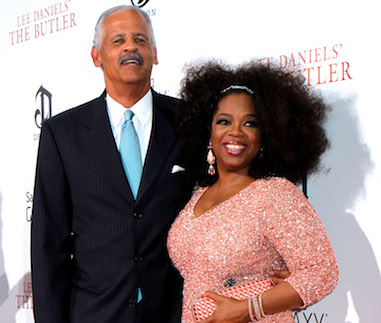
Huffington Post blogger Brittany Wong recently quoted Dr. Becky in an article focusing on the discussions couples need to have before getting married:
It may not be the sexiest way to spend a Saturday night, but discussing big-ticket relationship issues like family planning, money and monogamy could be the best way for couples to stave off a future split.
In fact, the ability to broach big, difficult conversations early on is one of the most important qualities in a new relationship, said Alicia H. Clark, a psychologist in Washington, D.C.,
“You can’t know how you work through disagreements until you have them,” she told HuffPost. “Disagreeing, arguing and fighting about these things will reveal what’s really important to you both. And knowing how your partner will handle conflict is almost just as important.”
What thorny conversations are crucial? Below, marriage therapists and psychologists share their top 10 picks.
The talk about what you want to change about each other. (Be honest, you know you want to.)
“A lot of partners enter marriage with a secret hope that something will change about their partner: He’ll spend less time with his friends when we’re building a family, she’ll spend less money shopping when we’re in this together, I’ll get him to cut back on his drinking. Holding on to these silent hopes can be very destructive to the long-term health and happiness of your marriage. Disclosing them before marriage can actually foster the change you want in a more effective way.”― Kurt Smith, a therapist who specializes in counseling men
The money talk.
“You need to have a long, potentially difficult discussion about money. Go over a few things: Will one or both of you work? What will your general approach to money management be? Will you save every penny, adopt a spend-it-while-we-have-it attitude or have a more middling approach? Many people operate with a ‘we’ll figure it out together as we go’ approach and while that may work if the couple has similar thoughts on finances, if they don’t, it can lead to a relationship war. One party may feel like like their style is forever being cramped, while the other may feel that their partner is leading the family towards financial ruin.” ― Laurel Steinberg, a New York-based relationship therapist and professor of psychology at Columbia University
The sex talk.
“If you suspect your partner’s need for sexual intimacy doesn’t match yours, don’t overlook it. You might want to believe it’s an insignificant issue or once you get married it will work itself out, but sex should be easiest in the first couple years of any relationship. If you’re unsure of your sexual compatibility now, you’re pretty much guaranteed to have problems in the bedroom later on when kids and life enter the picture. Sex is the one thing that cannot be outsourced in marriage. Problem with division of labor? Hire out for help. Different needs for social relationships? One partner joins a club and the other stays home. Sexual frustration is unique because it can only be solved within the marriage. Resentment grows and the higher libido partner will eventually feel betrayed by their partner’s lack of interest. The end result? Festering resentment and, often, the belief that infidelity is justified.” ― Caroline Madden, a marriage and family therapist in Burbank, California
The personal space talk.
“Discuss your need for time alone, or apart from one another. People often overlook this topic initially but after the intense bonding of the early stages, one or both of them may want a bit of time to themselves, or time apart as they go out with friends. If this isn’t discussed beforehand, one partner may feel ditched or jealous, or one of them could begin to feel suffocated and start building resentments. A conversation early on about the normal desire to have some time alone could help distinguish individual needs for solitude from rejection, and allow partners to ask for alone time when they need it and enjoy the time they spend together even more.” ― Ryan Howes, a psychologist in Pasadena, California
The talk about kids.
“It’s so important for a couple to have a straightforward, candid conversation, not only about whether they in fact want to have children, but their beliefs and values about navigating the parenting journey. Do either or both have rigid ideas about waiting to start the process or plunging right in? Do either have strong beliefs about infertility treatments or adoption, should there be difficulty conceiving? Has there been a discussion about religious beliefs and expectations about the religious upbringing of the child? Go over it all.” ― Linda Lipshutz, a psychotherapist in Palm Beach Gardens, Florida
The talk about how you’ll raise those kids.
“I see couples’ getting into power struggles a lot about raising kids ‘their way’ because they believe it’s the ‘right way’ with complete disregard for their partner’s preference and perspective. Having parents on the same team (knowing that it often takes work to get there) is imperative to the mental health and well being of children. Ask: Do you share the same core values? Do you agree on what qualities and behaviors from your own families you want to borrow and which you don’t?” ― Megan Fleming, a New York City-based psychologist and sex therapist
The monogamy talk.
“Most couples do want a monogamous marriage; however, monogamy can mean different things to different people, and without an honest conversation it is easy to imagine that your fiancé shares your views. Dig deeper, though: Are you comfortable with your soon-to-be spouse grabbing dinner with an ex who is in town on business? Are you comfortable with private or public friendships with an ex on social media? What about colleagues of the opposite sex? Will you be comfortable if you both have work that involves travel with attractive colleagues? And how might you want to navigate such situations if they arise? What if one of you develops a crush? It can be helpful to explore hypothetical challenges to monogamy through honest conversations before marriage.” ― Elisabeth J. LaMotte, a psychotherapist and founder of the DC Counseling and Psychotherapy Center
The talk about family traditions and rituals.
“Rituals are not only traditions around major holidays, but how you spend your weekends or how you should (or shouldn’t) eat together during dinnertime: Have you always sat at the table as a family or is it fine to eat separately or in front of the TV? By having these discussions before they happen, you can also stand as a united front if you get any push back from your parents about changes to family traditions. Having these discussions can help you recognize your similarities, make room for your differences and create your own culture as a married couple.” ― Danielle Kepler, a therapist in Chicago, Illinois
The talk about how you’ll handle future problems.
“You both need to know that your partner will do whatever is necessary to deal with future obstacles in the relationship, be it physical, emotional, mental or financial. For instance, if your partner gets depression or develops an anxiety disorder, many spouses would choose to not have it treated, or to ignore it or to mask it with medications or alcohol. Each person needs to know that the other will work to clear any obstacles that come along to the best of their ability. If the marriage falters, will you go to counseling with me and stick with it to work it out? We all need to know that our partner is action-oriented as opposed to being a person who sweeps things under the rug or just says, ‘This is me, deal with it.’” ― Becky Whetstone, a marriage family therapist in Little Rock, Arkansas
The “what’s your ideal marriage?” talk.
“Every premarital couple needs to clearly outline their expectations for themselves, their partner and the marriage they desire early on in the relationship and continue that conversation well into the marriage. Resentment creeps into relationships when you feel you are owed something, have been treated unfairly and is a mixture of disappointment, anger and fear. To that end, be vigilant: Set the bar high for your marriage and for yourself and stay in constant conversation about how you are staying the course. ― Laura Heck, a marriage and family therapist in Salt Lake City, Utah
Original article posted on July 19, 2017 by Brittany Wong at Huffington Post.


 Becky Whetstone is an Arkansas native and has a Ph.D. in Marriage and Family Therapy from St. Mary’s University in San Antonio, Texas. She is a Licensed Marriage and Family Therapist (LMFT) in Texas and Arkansas.
Becky Whetstone is an Arkansas native and has a Ph.D. in Marriage and Family Therapy from St. Mary’s University in San Antonio, Texas. She is a Licensed Marriage and Family Therapist (LMFT) in Texas and Arkansas. 


















































































































